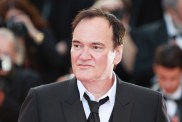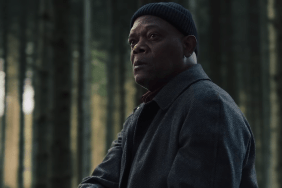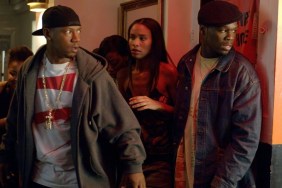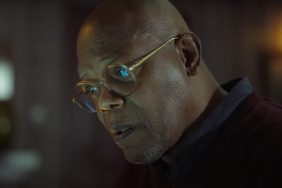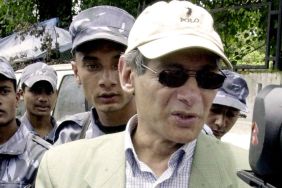Terrence Dashon Howard as DJay
Anthony Anderson as Key
Taryn Manning as Nola
Taraji P. Henson as Shug
Paula Jai Parker as Lexus
Elise Neal as Yevette
DJ Qualls as Shelby
Ludacris as Skinny Black
Isaac Hayes
Summary:
With Hustle & Flow, director Craig Brewer and actor Terrence Howard burst out of the gate as the year’s talent to watch, simply by turning what would normally be a reprehensible character like DJay into the most inspirational underdog champion since Rocky Balboa.
Story:
DJay (Terrence Howard) is a two-bit Memphis pimp and drug dealer, who makes his money by talking women into turning tricks for him. But DJay is far from a cold-hearted tyrant, and as he gets older, he realizes there may be he begins to think that there may be more to life than his cyclical lifestyle. When he learns that a successful local rapper is returning home, he hopes to use the opportunity to start a recording career writing about his life as a pimp.
Analysis:
Reviewing a movie like Hustle and Flow, the second feature film by Craig Brewer but the first you’re likely to see, is almost a no-brainer. So many others have already raved about Brewer’s script and Terrence Howard’s performance after the movie’s Sundance Film Festival debut that it almost seems like anything positive that can be said about the movie would be redundant. The reason why the movie is getting so much critical attention is that it takes elements of the Hollywood rags-to-riches story but puts them into a very different Southern setting, making it such a singularly unique experience.
Terrence Howard’s DJay is introduced as he sits in his tricked-out car giving a pep talk to his #1 girl Nola (Tarryn Manning). Their relationship isn’t clear at first, but it becomes obvious that it’s that of pimp and prostitute. Over the next twenty minutes, we watch DJay at work, sweet-talkin’ his girls, including the sassy Lexus (Paula Jai Parker) and the sweet and very pregnant Shug (Taraji Henson), and hustlin’ his way through drug deals. It’s hard to imagine a movie which starts with that sort of set-up ending up somewhere else altogether, but that’s just part of why the movie is so riveting.
DJay’s priorities start to change when he sees a local rapper named Skinny Black, played by Ludacris, on television. Realizing that it’s possible for a local boy to make it big, DJay intends to meet the rapper when he returns home to Memphis for a 4th of July party at a local dive bas. Seeing this as his chance to break away from the pimp lifestyle, DJay teams with a local recording engineer named Key (Anthony Anderson), who’s has been looking for his own big break, if only to prove to his overbearing wife that he can make a living making music. Once they get into the studio, the film starts to find its groove as DJay lays down his lyrics or “flows” over tracks created by Key and a nerdy programmer played by Road Trip‘s D.J. Qualls. It allows for the most accurate depictions on film of how tunes come together in the studio. With new motivation, DJay has his women turn tricks to get enough money to build a studio, and even Shug gets in on the act, as she adds her sultry voice to the choruses.
There’s little question that this movie belongs to Terrence Howard, as he gives the performance of the year and of his career. DJay is such a different character than the beleaguered television producer he played in Crash, because he’s not exactly a sympathetic character, at least not at first. DJay uses his smooth patter and tough attitude to get everyone to do what he wants, but there’s a humanity brought to the character by the sadness in Howard’s eyes, so that you realize that he only acts the way he does, because it’s the only way he knows how. Once you realize this, it’s even more obvious how important it is for DJay to fulfill his dream and get out of his current way of living.
The rest of the ensemble cast does a great job keeping up with Howard, each of them getting at least one strong dramatic moment with Howard, which shows how much deeper the relationships go then what is perceived on the surface. The best scene involves Anthony Anderson laying it on the line, making it known to DJay that he understands that he is being played, but that he also believes enough in DJay’s talents to give him the benefit of the doubt.
Brewer has to be given most of the credit for the realistic story and credible characters he created, as well as the amazing performances he brings out of these unlikely actors. It elevates the movie far above other movies of this ilk, as does the amazing soundtrack of hard-edged hip hop tracks that give it a modern spin on the old ’70s blaxploitation flick.
At times, the movie seems to be glorifying the pimp lifestyle, making it seem like the way DJay treats his women is okay. It’s softened over the course of the story by moments showing how DJay cares for his girls as much as they care for him, something best personified by the scenes between DJay and Tarryn Manning’s Nola, which play such a significant part in the film. The turning point comes when Nola finally stands up to DJay, setting the stage for her to play a pivotal role in his fate.
When the time comes for DJay to meet that fate in the form of Skinny Black, the story can only seemingly go in one of two directions, but Brewer pulls a surprise out of his bag of tricks, creating a memorable movie moment between Howard and Ludacris that makes you wait even longer for the film’s climax. From there, the story goes in a different direction then one might expect if this were a Hollywood produced movie, but Brewer’s positive and inspirational finale is sure to have you walking out of the theatre humming the chorus of DJay’s catchy “Whoop Dat Trick.”
The Bottom Line:
While the subject matter won’t appeal to everyone, Brewer’s story and script are strong, as is the cast he assembled to tell this story. Above and beyond that, Terrence Howard gives such an inspirational performance that anyone should able to find something to relate to in this unlikely protagonist.

